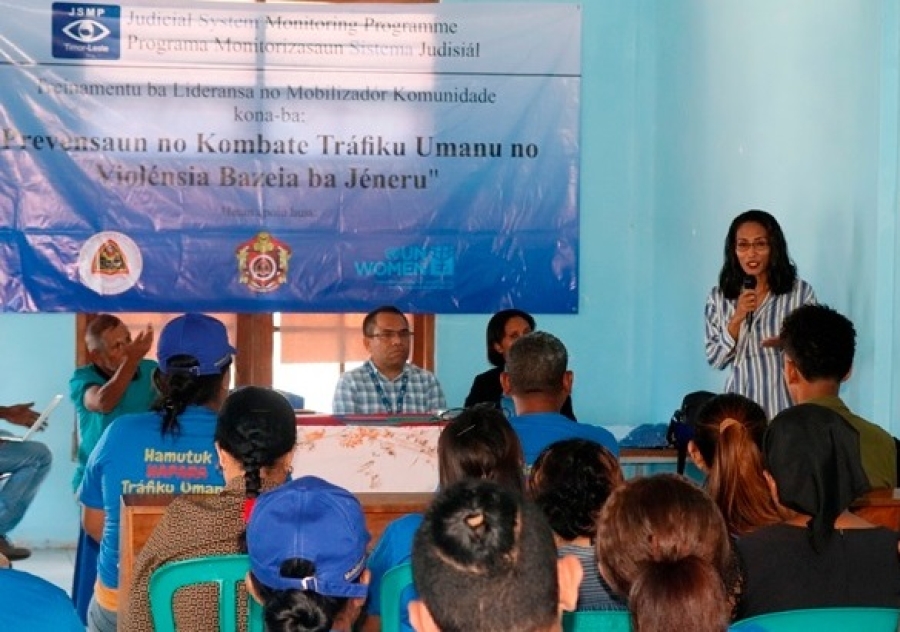This rallying cry came on World Day against Trafficking in Person, as advocates work tirelessly to protect people from a crime that preys on vulnerability and thrives in times of conflict and instability, with more and more people targeted today.
During a commemorative event on Sunday, participants discussed human trafficking in Timor-Leste and the conditions that lead people into it.
Judicial System Monitoring Program’s (JSMP) Director Ana Paula Marcal said more should be done to help survivors rebuild their lives and reduce people’s vulnerability to it.
The group asked for all actors to engage in dialogue around measure to prevent human trafficking.
JSMP gave no figures for the number of people trafficked from Timor-Leste every year, but a 2018 International Organisation for Migration report put 64 victims of trafficking in the country that year.
According to the 2022 Global Report on Trafficking in Persons, published by the UN more than 50 per cent of cases of human trafficking are brought forward by victims or their families, with authorities struggling to detect and protect trafficking victims, which is a concerning new trend compared to previous years.
The findings also show that women and girls, who account for around 60 percent of detected victims, are more likely to suffer sexual exploitation and higher levels of violence at the hands of their captors, while men and boys are being increasingly exploited for forced labour and criminal activities.







